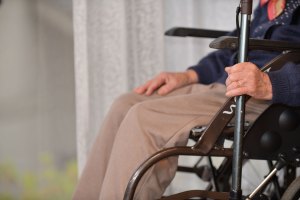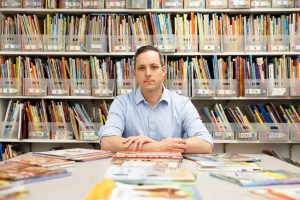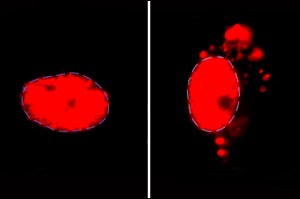Tag: Cell Biology
-
Health
Siddhartha Mukherjee on Aristotle, COVID, and the ‘new human’
Pulitzer Prize-winning physician-author Siddhartha Mukherjee returns with “The Song of the Cell.”
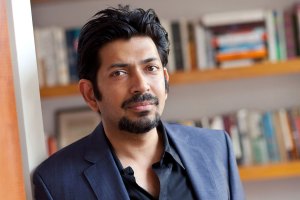
-
Science & Tech
A new spin on an old question
Understanding how DNA and proteins interact — or fail to — could help answer fundamental biological questions about human health and disease.
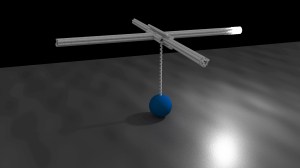
-
Science & Tech
Cells like we’ve never seen them before
“This is the miracle of being able to see what we have never been able to see before,” said Harvard Medical School professor and study co-author Tomas Kirchhausen.
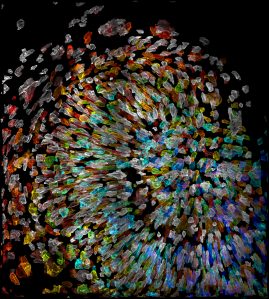
-
Campus & Community
Lab opens doors for an undergrad experience
As part of Harvard’s Wintersession, a handful of freshmen got the chance to experience the reality of lab work by exploring how altering genes in yeast affected the cells’ functions.
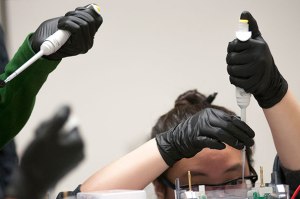
-
Science & Tech
Creating ‘genomic origami’
Researchers have assembled the first high-resolution, 3-D maps of entire folded genomes and found a structural basis for gene regulation, a kind of “genomic origami” that allows the same genome to produce different types of cells.

-
Health
The cellular origin of fibrosis
Harvard Stem Cell Institute scientists at Brigham and Women’s Hospital have found the cellular origin of the tissue scarring caused by organ damage associated with diabetes, lung disease, high blood pressure, kidney disease, and other conditions.
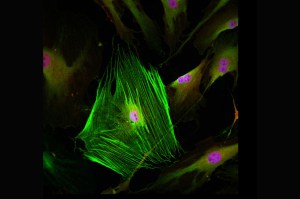
-
Health
A malignant ‘switch’ in breast cancer
A team of researchers led by David J. Mooney, Robert P. Pinkas Family Professor of Bioengineering at the Harvard School of Engineering and Applied Sciences, has identified a possible mechanism by which normal cells turn malignant in mammary epithelial tissues, those frequently involved in breast cancer.
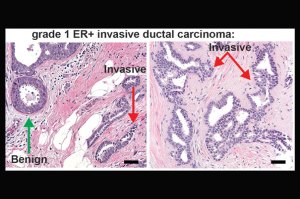
-
Science & Tech
Clues in the cucumber’s climb
Harvard researchers, captivated by a strange coiling behavior in the grasping tendrils of the cucumber plant, have characterized a new type of spring that is soft when pulled gently and stiff when pulled strongly.
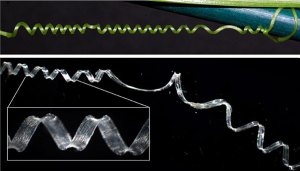
-
Science & Tech
Rethinking mitosis
The mitotic spindle, an apparatus that segregates chromosomes during cell division, may be more complex than the standard textbook picture suggests, according to researchers at the Harvard School of Engineering and Applied Sciences.
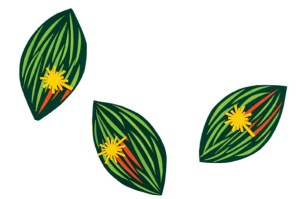
-
Health
Initiative challenges drug crisis
Taking aim at the alarming slowdown in the development of new and lifesaving drugs, Harvard Medical School is launching the Initiative in Systems Pharmacology, a comprehensive strategy to transform drug discovery by convening biologists, chemists, pharmacologists, physicists, computer scientists, and clinicians to explore together how drugs work in complex systems.
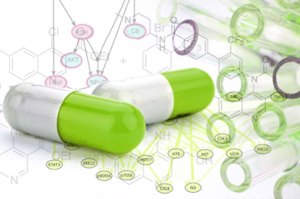
-
Health
Rare find
Researchers at Harvard Medical School and the Harvard School of Dental Medicine have found that by mimicking a rare genetic disorder in a dish they can rewind the internal clock of a mature cell and drive it back into an adult stem-cell stage.

-
Health
Researchers gain ground in treatment options for disfiguring tumor
A team of researchers led by Harvard School of Dental Medicine (HSDM) Dean for Research Bjorn Olsen has discovered a mechanism for the rapid growth seen in infantile hemangioma, the most common childhood tumor.
-
Health
Stem cell summit hails bench progress, looks to bedside future
New discoveries concerning cell reprogramming over the past year have boosted stem cell researchers in the lab and encouraged efforts to transfer test tube and lab animal advances to humans suffering degenerative diseases such as diabetes, Parkinson’s disease, and Lou Gehrig’s disease.
-
Campus & Community
New department approved
The Harvard Corporation has approved, with the support of the deans of the Faculty of Arts and Sciences (FAS) and the Harvard Medical School (HMS), the establishment of a new Department of Developmental and Regenerative Biology, the first academic department in Harvard’s 371-year history to be based in more than one of the University’s Schools.…
-
Health
Brugge, colleagues urge Senate to increase NIH funding
Testifying Monday afternoon (March 19) before a U.S. Senate committee hearing on National Institutes of Health (NIH) funding, Harvard Medical School Cell Biology Department Chair Joan S. Brugge warned that “four years of flat [NIH] funding have had a devastating impact on the trajectory of cancer research,” threatening “the rapid progress in developing effective and…
-
Health
Mystery muscles make mightier mice
Scientists have muscled in on a genetic switch that allows mice to run longer and faster. Humans possess the same switch, so the discovery might open new paths to treating muscle-wasting diseases and building better bodies.

